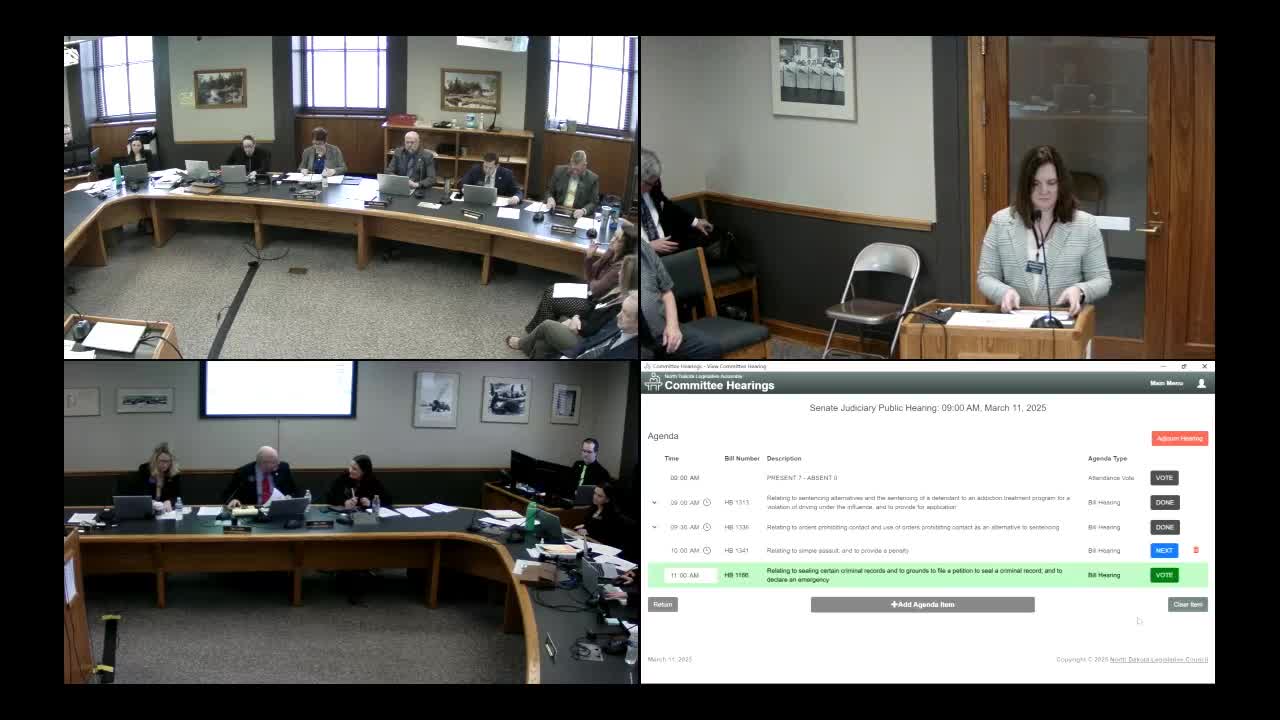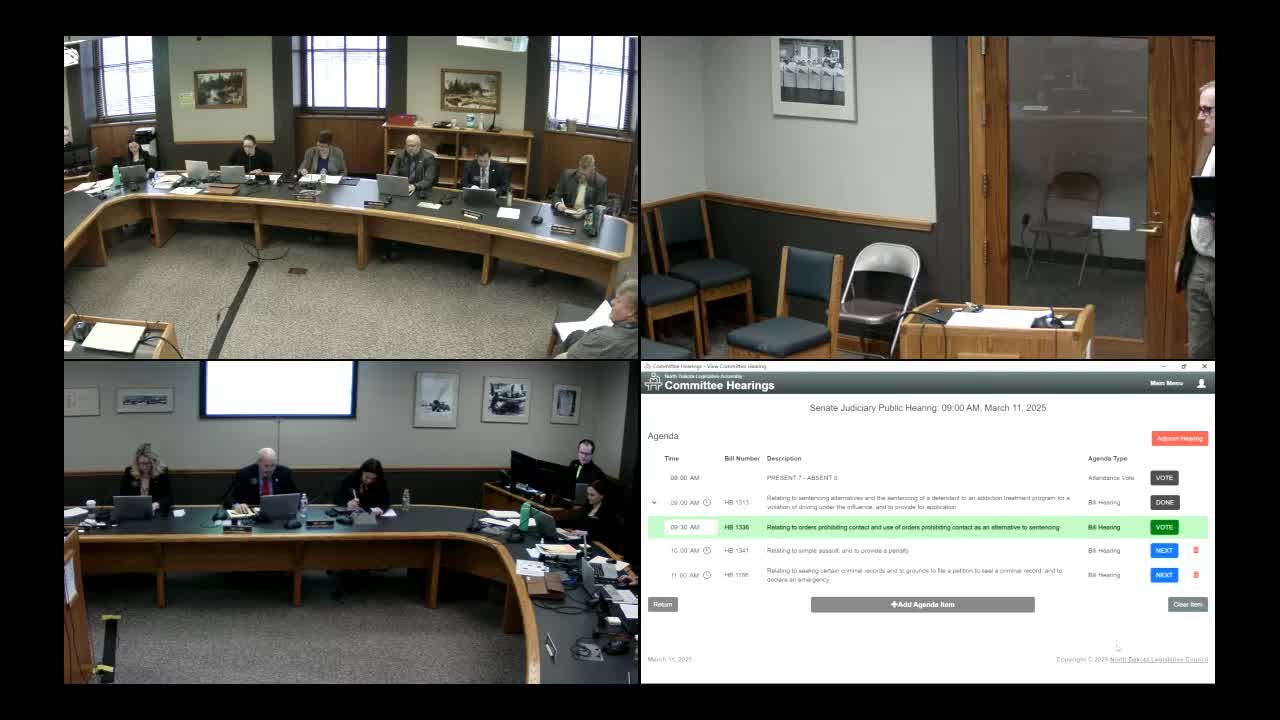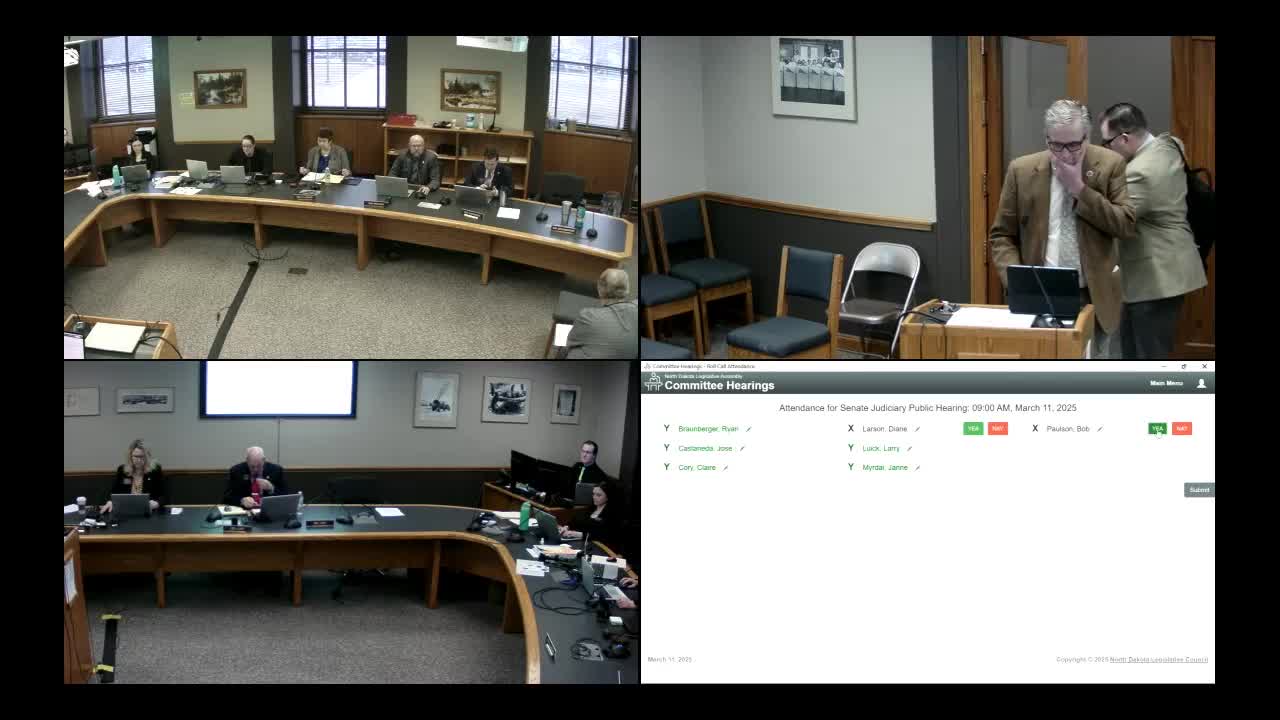Article not found
This article is no longer available. But don't worry—we've gathered other articles that discuss the same topic.

Committee hears hours of testimony on bill to make assaulting hospital workers a felony; advocates and opponents clash over scope

Committee hears competing views on bill to seal dismissed or acquitted records; court staff warn retroactive sealing would be administratively heavy

Committee advances bill to allow protective orders up to sentencing and to provide removal process

